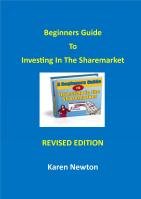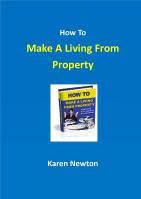Are you an investor or a trader?
What is the difference?
There are 4 investment categories – Cash, Paper, Property and Business. A trader will be looking for a quick turnaround preferably for profit. But, they will also sell and cut their losses if their trade moves in the wrong direction. An investor will invest for the long term with a plan for defined results or better and will exit the investment once their objective is achieved.
How do you put that into practice?
Shares
A trader will buy a share with the purpose of wanting it to go up in value by X percentage. Once the share has reached the price target the share is sold. Depending on the market this could range from minutes to days. If the price of the share drops the trader will sell the share as quickly as possible to minimize the loss. They will then move on to the next trade. As a trader you will need to keep a constant eye on prices as fortunes can be made or lost quickly.
An investor will buy a share for the long term performance and income. While they will always want the price of the share to go up they won’t panic if the price goes down because income from dividends plays a part in their overall strategy. A share is general only sold if performance and income don’t meet expectations. An investor will generally hold a share for years. They are more relaxed about prices going up or down and will often only check the price of their shares weekly or monthly just to check the dividends are continuing at the expected level, to reinvest dividends or to take the income.
If you are using spreadbetting as a strategy you are trading.
Property
You can recognise a property trader as someone who flips property. Flipping is where you buy a property, often off plan, i.e. before it is built with the intention of reselling it once it is completed. For example you can buy the first stage of a new development for £100,000. Put down a deposit – could be as little as £5,000 – £10,000 with full payment due once completed. (If you can buy at the first stage of the development prices are cheaper.) Once stage two of the development is started house prices could be £150,000 if the trader sells the property at £140,000 the purchaser is happy because they have bought the property below current value. The trader is happy because he has made £40,000 for his £5,000 – £10,000 investment. The trader has no intention of owning the property they are looking for a quick return and then move onto the next investment. Flipping is one example of a trading.
An investor will be looking to buy at the best possible price. Usually, they buy the worst house in the street and do up the property so the value of the property has increased but instead of selling the property they will rent it out. They then have income from the rental property and over time the property will continue rising in value. (House prices on average double in price over 7 – 10 years.) The investor may have an exit strategy of selling once the house has doubled in price or they may want to hold the investment indefinitely and leave it to family when they die.
Business
A trader is someone looking for unsellable businesses which can be bought cheaply, have a quick makeover and sold for profit. As an example a business may be up for sale for a long time or with a receiver. The owner/receiver wants to get rid of the business at whatever price they can. A trader can offer to buy the business for £1 plus take over the running costs. They will generate better sales, increase the value of the business and sell it for a profit. The turnaround time generally around 6 – 18 months.
An investor will usually start the business. Build it and derive an income from it. Provided the business continues growing and generating income the investor will hold on to the business. Their exit strategy being to sell once a certain value has been achieved or hold on indefinitely. Investors can also be silent partners or angel investors.
Are you a trader or an investor?
Understanding the type person you are is the first step to deciding if you are a trader or investor. Do you like the thrill or stress of close monitoring to achieve your trade or are you more laid back and willing to wait for the results to come your way? Only once you can answer that question truthfully can you decide if you are a trader or investor. Once you understand which suits you best you will achieve greater success.
Karen Newton is an entrepreneur, investor, author and speaker. For more information visit www.karennewton.co.uk





Leave a comment